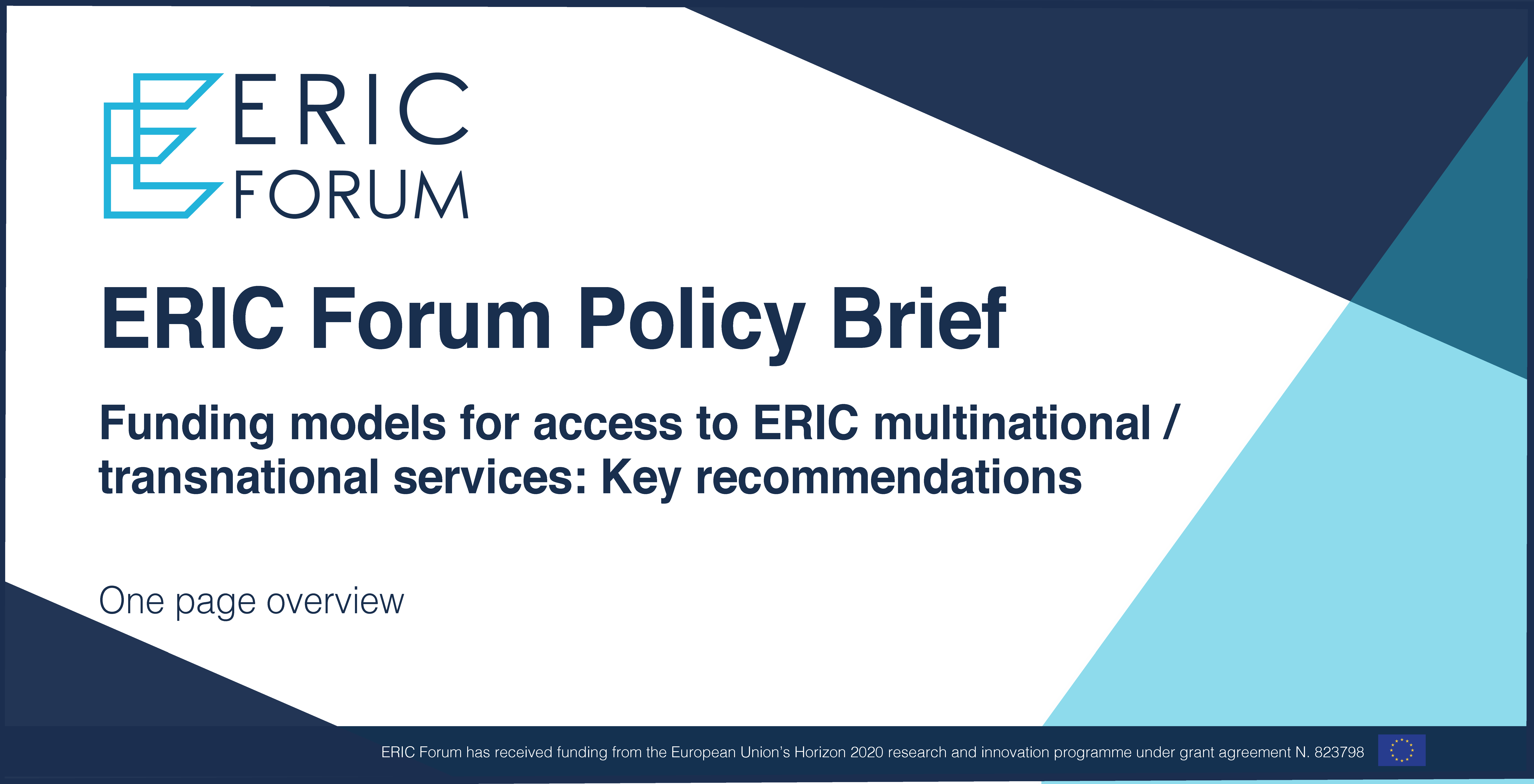
Over the course of the past decade, European Research Infrastructure Consortia (ERICs) have become key instruments for cutting-edge science that provide solutions to today’s major socio-economic and environmental challenges, underpinning the development of the European Research Area (ERA) and fostering multinational and transnational cooperation. Funding from diverse schemes, together with the invaluable contributions of ERIC member countries, have allowed ERICs to deliver access to services, facilities, samples and data across Europe. With the future of the ERA at our doorstep, ERICs must continue to evolve and expand their outreach, while upholding the highest standards of scientific excellence. Funding schemes that can sustainably provide resources in sufficient volumes will be essential.
As funding mechanisms evolve, the following recommendations can be highlighted:
- ERICs should be fully eligible and be recognized by national funding agencies, and cross-border funding from national funding agencies should be promoted;
- ERICs and funding bodies at all levels can join efforts to improve ERICs visibility and attractiveness. Funding bodies should actively refer applicants to ERICs, encouraging and providing incentives for their use;
- Transnational Access mechanisms must be safeguarded, and expanded to support ERIC consolidation, respond to specific challenges, develop research communities and provide a flexible budget for sustainable access for competitive projects;
- Simplification of the application and financial processes for distributed RIs in Horizon funding can help to overcome bureaucratic hurdles and boost the visibility of ERICs;
- Dialogue and collaboration among national, regional and European funding bodies must be strengthened to ensure the alignment of strategies and the synergic use of resources.
A continuous and open dialogue between ERICs and all funding bodies is required to identify and adopt solutions that will lead to the optimized and sustained use of ERICs. A dedicated working group will be created within the ERIC Forum to continue exploring these questions and reflect on pragmatic solutions.
The collaboration between the EU Commission and the Member States in the continued evolution of the ERIC Regulation, is also required to define and optimise the funding volume and mechanisms supporting the broad variety of ERIC operations models. A sustained effort from ERICs in their evaluation and assessment of their funding models will contribute to a fruitful and productive dialogue.
The ERIC Forum, through its dedicated working group and through all of its members, will continue to play an active role in improving the visibility of ERICs and in maintaining an open and sustainable dialogue with the European Commission, with ESFRI, and with the national public funding bodies. It will strive to contribute to the international recognition and the competitive edge of European Research Infrastructure landscape, strengthening Europe’s global position in research and innovation, and improving the life of European citizens.
–
You can download the policy brief’s one pager here.